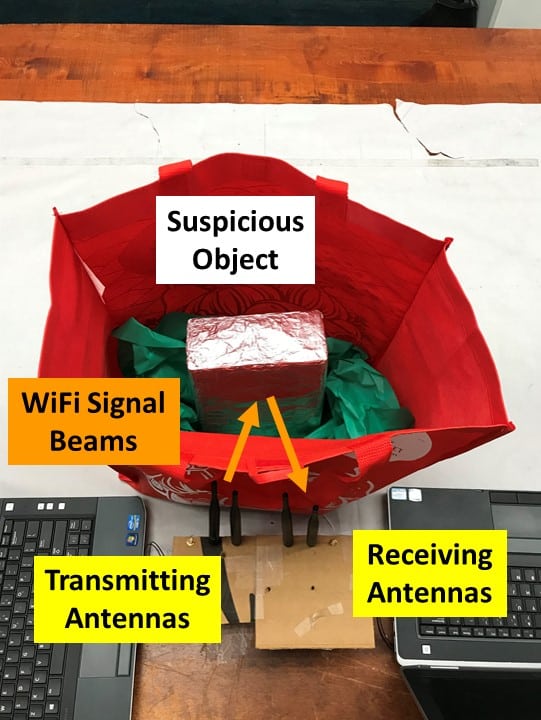Led by Rutgers University’s Wireless Information Network Laboratory (WINLAB), the study describes how fine-grained channel state information (CSI) from off-the-shelf WiFi is used to first detect what material an object in a bag is made of. This CSI, which includes amplitude and phase information, is then used to calculate the dimensions of the item, whether that be the volume of liquid or the size of a metal object. According to the researchers, the low-cost system requires a WiFi device with two to three antennas and can be integrated into existing WiFi networks.

"This could have a great impact in protecting the public from dangerous objects," said Yingying (Jennifer) Chen, study co-author and a professor in the Department of Electrical and Computer Engineering in Rutgers-New Brunswick's School of Engineering. "There's a growing need for that now."
The team, which also included engineers from Indiana University-Purdue University Indianapolis (IUPUI) and Binghamton University, carried out experiments with 15 types of objects and six different types of bags. According to the paper which supports the work, the system achieved detection accuracy rates of 99 per cent for dangerous objects, 98 per cent for metal and 95 per cent for liquid. For typical backpacks, the accuracy rate exceeded 95 per cent but dropped to about 90 per cent when objects inside bags were wrapped. In comparison to screening at airports that requires special equipment and lots of manpower, the system is non-invasive and could be used to scan bags at museums, stadiums and schools.
"In large public areas, it's hard to set up expensive screening infrastructure like what's in airports," said Chen. "Manpower is always needed to check bags and we wanted to develop a complementary method to try to reduce manpower."
The research recently received a best paper award at the 2018 IEEE Conference on Communications and Network Security, which took place in Beijing.





Nanogenerator consumes CO2 to generate electricity
Whoopee, they've solved how to keep a light on but not a lot else.